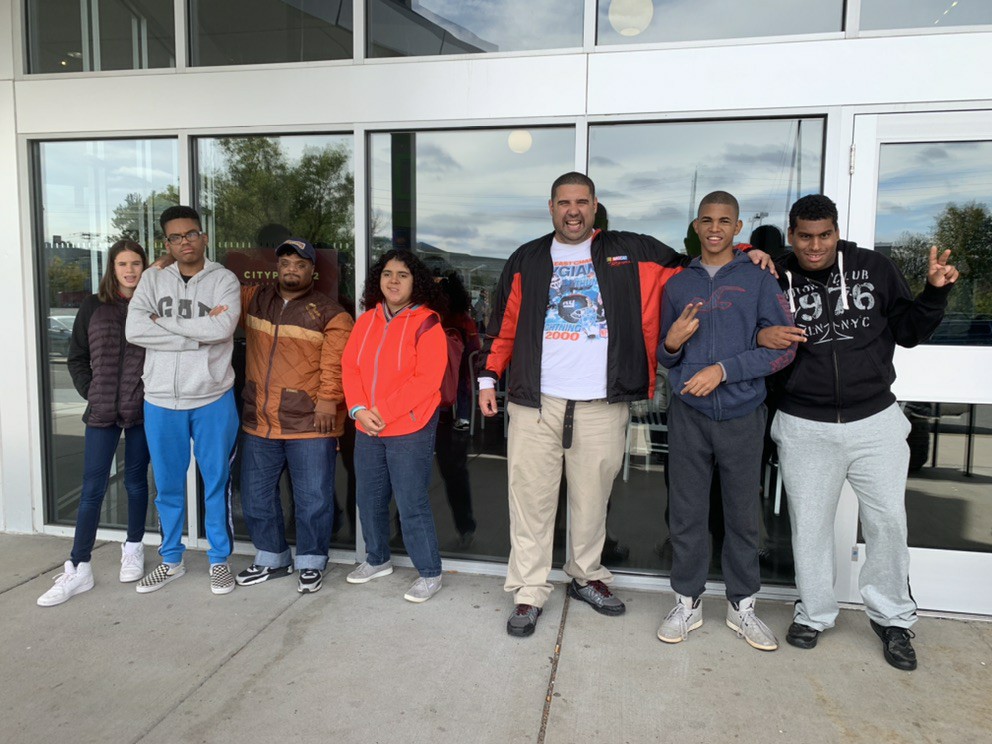I/DD ADULT SERVICES:
Individuals, aged 21 years and older, with an intellectual and/or developmental disability may qualify for the following services:
Day Habilitation, Community Inclusion Services, Behavioral Supports, Community Based Supports, Natural Supports Training, Respite, Prevocational Training, Employment Support and Career Planning.
DAY HABILITATION: This program is provided during the day time and designed to support individuals with the following services:
- Building problem solving skills
- Daily living skills
- Safe, therapeutic leisure and peer socialization
- Self-care/self-help and adaptive skills acumen
- Interpersonal competence & greater independence awareness
- Community choices with guidance
COMMUNITY INCLUSION SERVICES: We deliver Community Inclusion Services in a group setting of six or less participants.
- Provided outside of a participant’s home
- Designed to support and assist participants in educational, enrichment or recreational activities
BEHAVIORAL SUPPORTS: Intervention modalities that relate to an identified challenging behavioral need related to the individual’s developmental disability and/or that are necessary for the individual to acquire or maintain appropriate interactions with others.
Services may include:
- Diagnostic evaluations or consultations
- Behavioral interventions
- Individual and/or group counseling
- Assessments
- Stabilization
- Structured planning
- Development
- Implementation
- Training for staff and caregivers including behavioral aides
- Periodic reassessment of plans
- Supervision throughout the process
COMMUNITY BASED SUPPORTS: Services that provide direct support and assistance for participants, with or without the caregiver present, in or out of the participant’s residence, to achieve and/or maintain the outcomes of increased independence.
- Services delivered 1:1
- Training and assistance provided by expert personnel
- Supervision and guidance with self-basic care, social skills, and activities of daily living
NATURAL SUPPORTS TRAINING: Educational and counseling services for individuals who provide unpaid support, training, companionship or supervision to participants. For purposes of this service, individual is defined as: “any person, family member, neighbor, friend, companion, or co-worker who provides uncompensated care, training, guidance, companionship or support to a participant.”
Training includes:
- Instruction about treatment regimens and other services, use of equipment (as specified), and updates as necessary to safely maintain the participant at home.
- Counseling is aimed at assisting the caregiver in meeting the needs of the participant.
Natural Supports Training may be delivered to one individual or may be shared with one other individual.
RESPITE SERVICES: Taking care of an individual with a disability or I/DD is a huge responsibility. Respite Services are designed to provide families with expert care for their loved one when relief of duty, supervision or temporary assistance may be needed.
- Respite may be delivered in multiple periods of duration such as partial hour, hourly, and daily; with or without overnight services
- Respite may be provided in the participant’s home, a DHS licensed group home, or another community-based setting approved by DHS
Why is Respite Service Important?
As a parent and caregiver, you are often required to give intensive care and supervision 24 hours a day, 7 days a week, 365 days a year. There are many things that can be impacted by this level of dedication:
- Job performance
- Attending other children’s events
- Spending quality time with your spouse or support system
- Errands and appointments
- Emergencies


